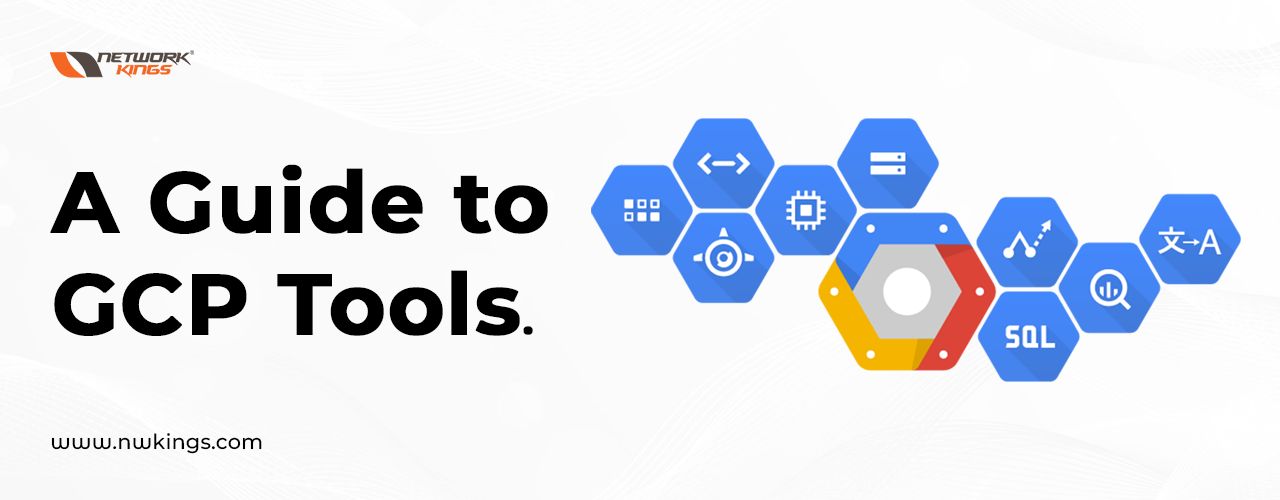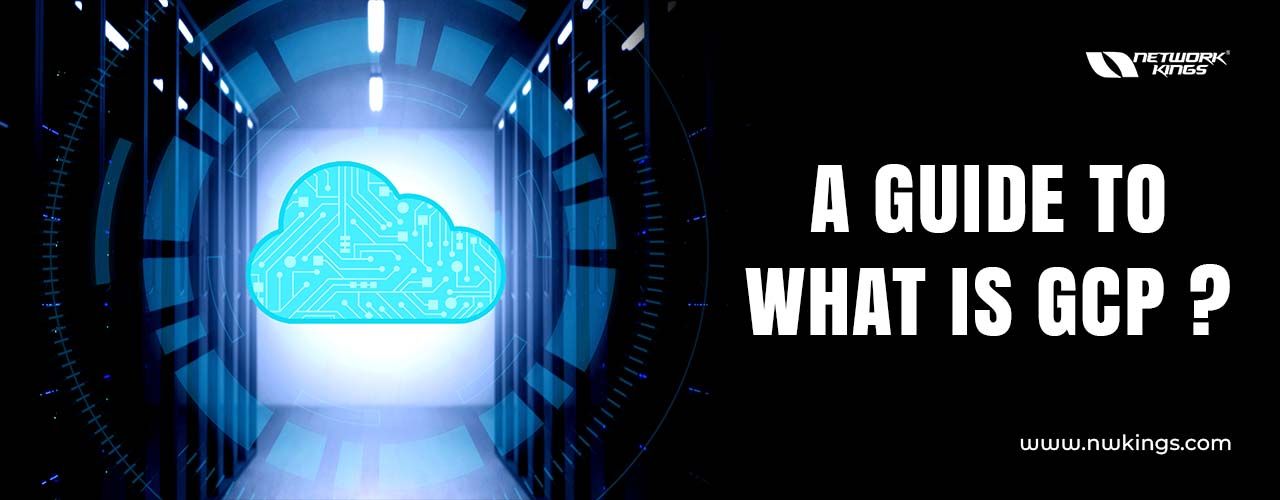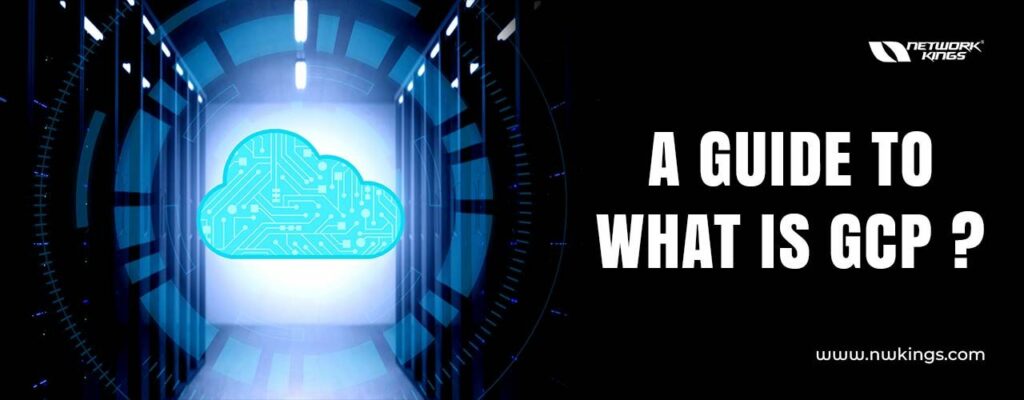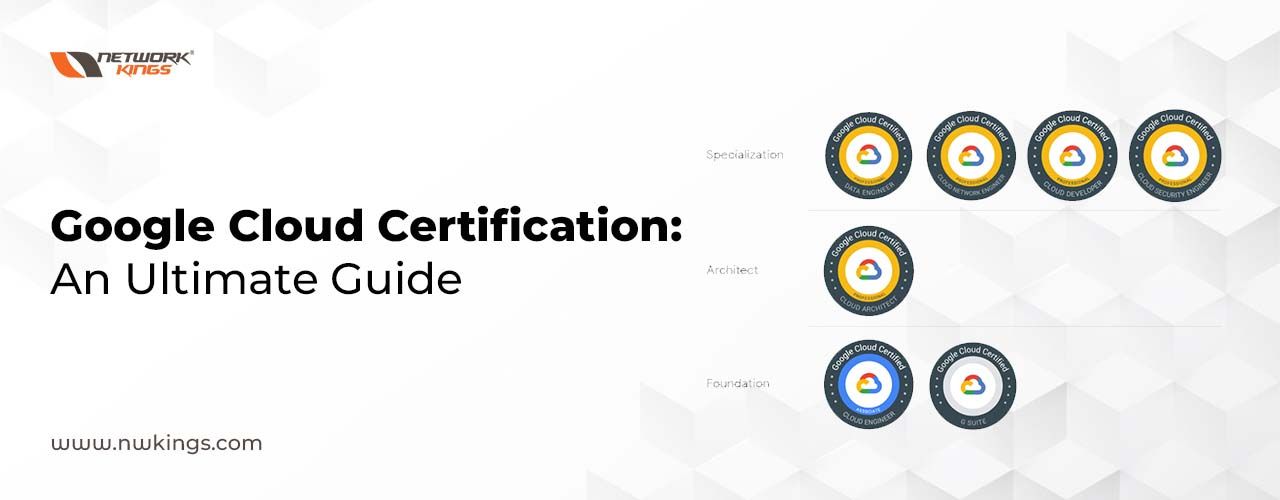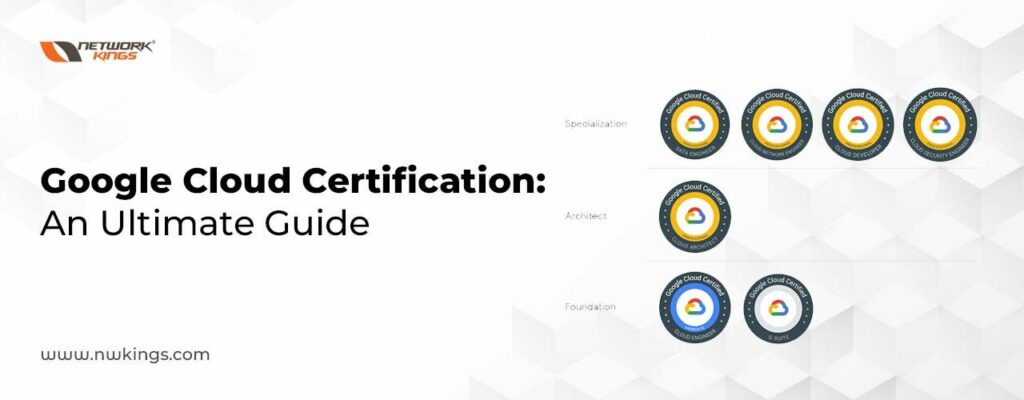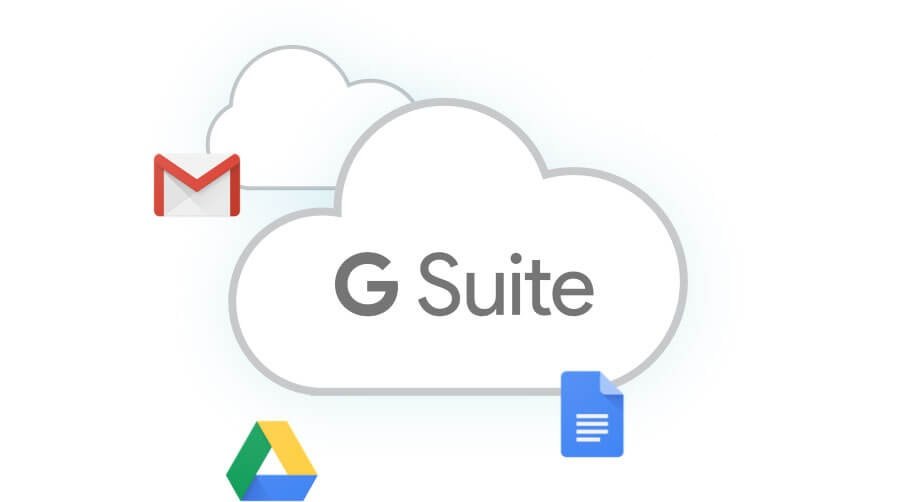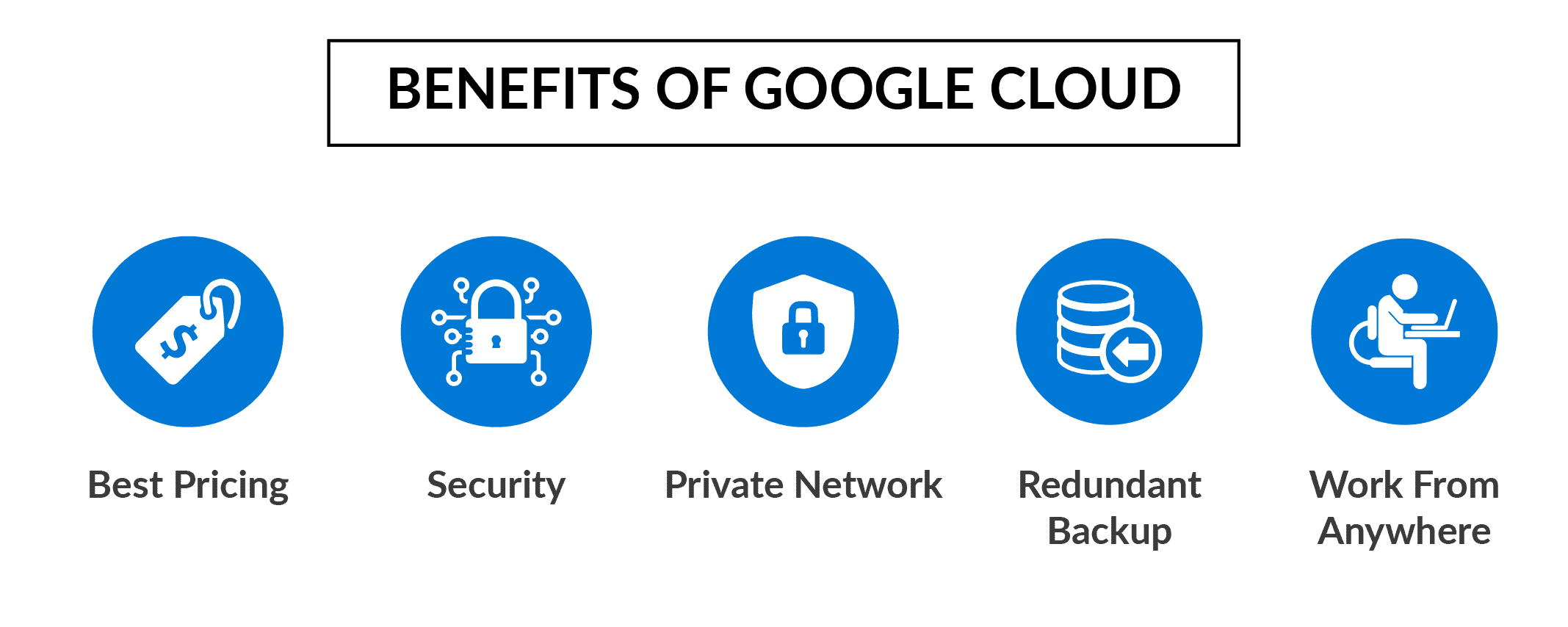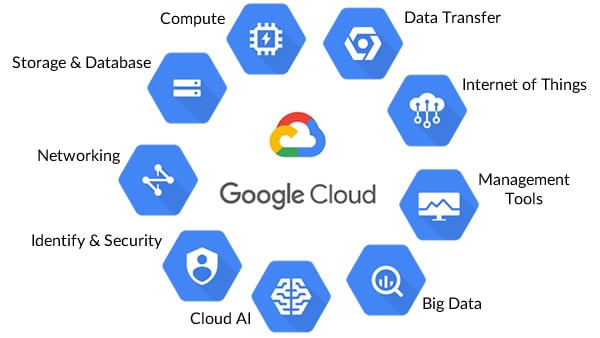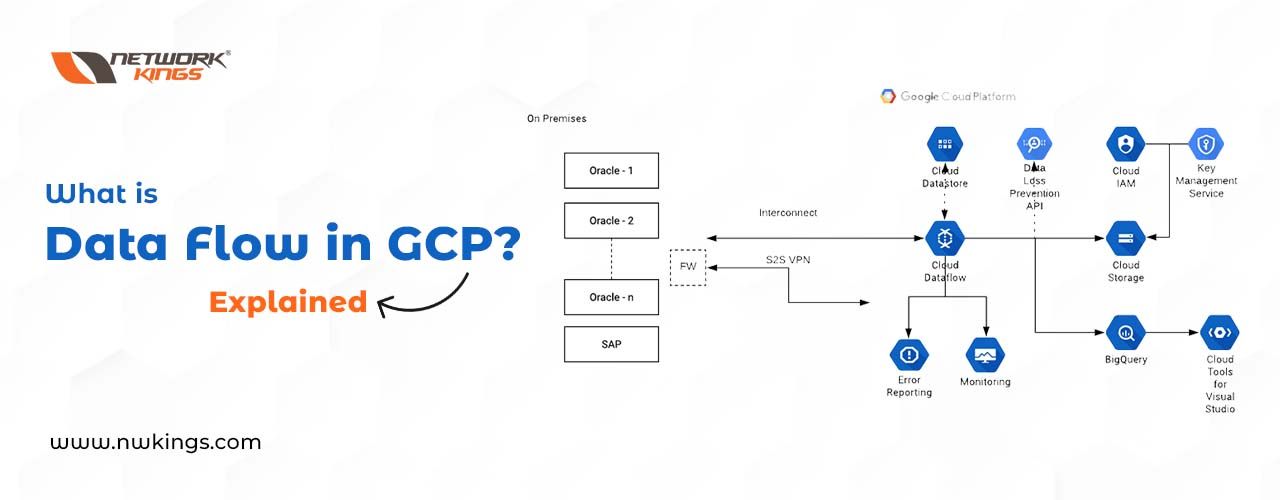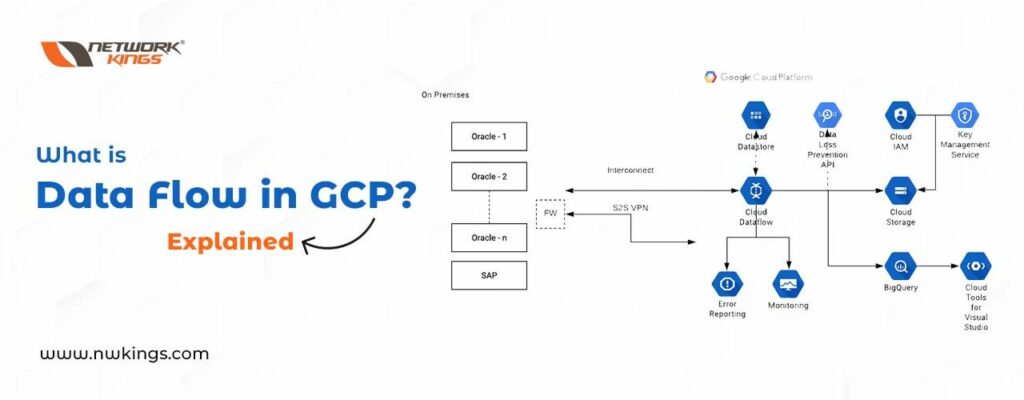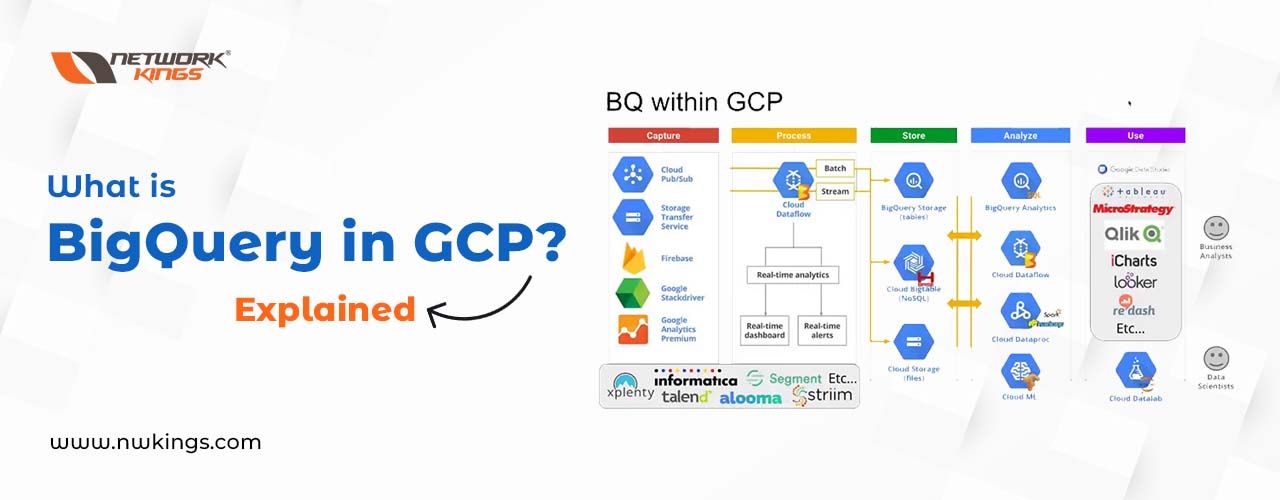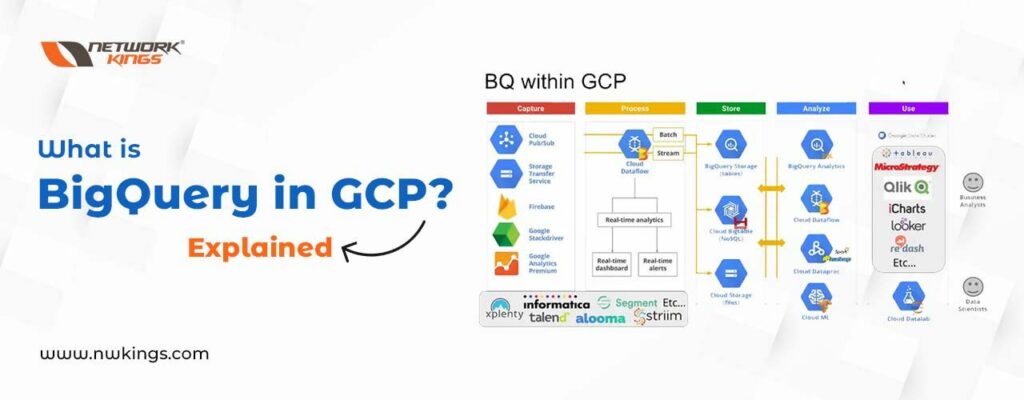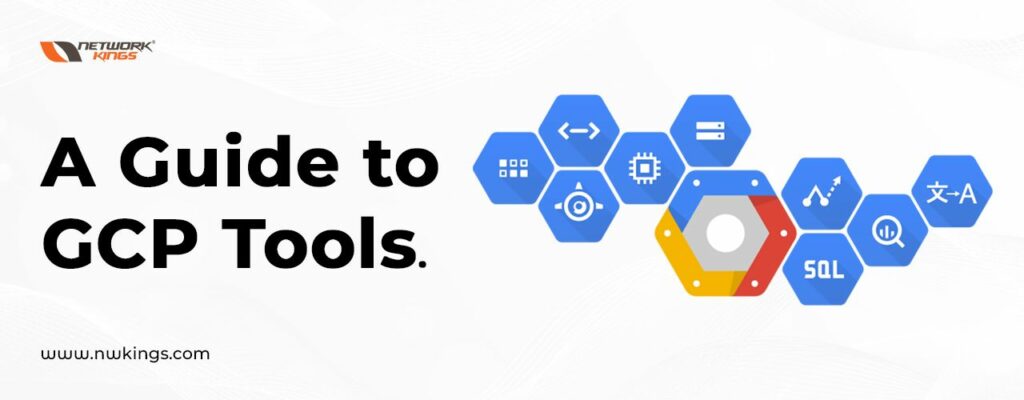
Do you want to get trained in utilizing GCP tools effectively? Google Cloud Platform (GCP) is an initiative by Google to provide cloud computing services to customers. These services operate on the same infrastructure and platform on which Google services, such as Gmail, YouTube, etc. Google Cloud Platform (GCP) offers a wide array of powerful tools and services that enable businesses to leverage the full potential of cloud computing.
In this blog post, we will delve into the world of GCP tools, providing you with a comprehensive understanding of their functionalities, benefits, and how to get trained in utilizing them effectively.
What are GCP Tools?
Google Cloud Platform (GCP) tools are a collection of services and utilities provided by Google to facilitate various aspects of cloud computing. These tools are designed to cater to different needs, including data storage, processing, analysis, machine learning, and more. By leveraging GCP tools, businesses can harness the power of the cloud and drive innovation in their operations.
What is the GCP Ecosystem?
GCP service equips a distinct array of services, encompassing computing, storage, networking, machine learning, and more, allowing the development, deployment, and oversight of applications and services worldwide.
While GCP has fewer data centers than AWS and Azure, they are known for their best work global network infrastructure. Google’s mastery in network optimization assures fast data transfer and low-latency connections, making GCP the best choice for latency-sensitive applications.
What are the GCP Tools and Their Functions?
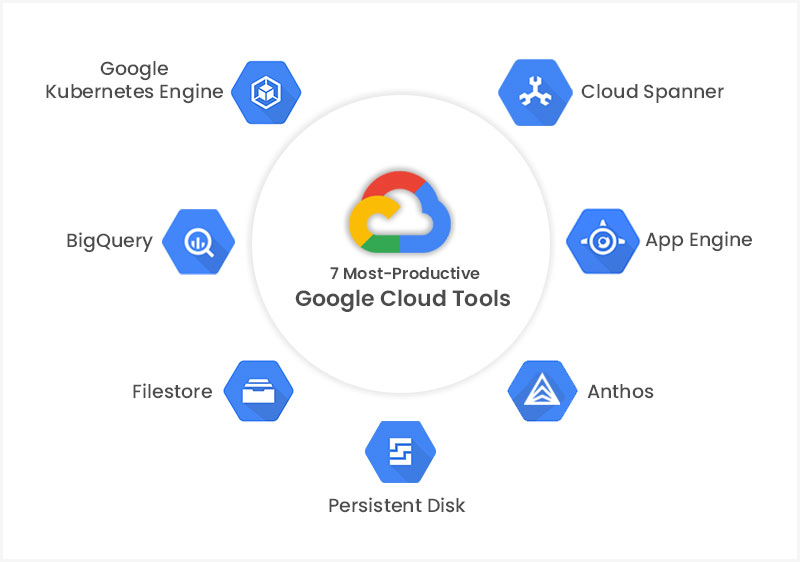
Here is a list of GCP Tools and their functions:
- Google Kubernetes Engine: Google Kubernetes Engine (GKE) deploys production-ready applications. It contains a strong collection manager and orchestration tool for operating Docker containers.
- Anthos: Anthos is a cloud-based platform created by Google Cloud that shows an open-ended platform for handling applications. It keeps numerous clouds and monitors services, including safety, observation, and management tools.
- Google Cloud Storage: Google Cloud Storage is an all-in-one storage solution that presents products and services, including file storage and a Content Delivery Network (CDN). Google Cloud reporting tool is the ultimate repository solution for developers worldwide.
- Persistent Disk: Google Cloud Persistent Disk comes under Google Cloud developer tools that show users a better performance and scalability solution. It is best fitted for applications and workloads demanding continuous block storage.
- Local SSDs: Local SSDs are a storage solution that can get entrance with the help of Google Cloud Platform Console or a Gcloud command line tool. It is a high-performance block storage solution connected to the Google Compute Engine (GCE).
- Filestore: Filestore is a tool under Google cloud security tools that allows store, manage, and access big amounts of data without the hassle of manually revamping the storage. It permits businesses to access and store data with comfort.
- BigQuery: BigQuery’s Google Cloud Security tools let users access a cloud-native service that self-operates data transfer. With the help of this storage device, developers can easily facilitate their batch operations while querying large datasets virtually.
- Cloud Run: Google Cloud Run is a cloud-computing platform that assures easy arrangement to users in terms of stateless containers. Its Google Cloud testing tools rule out infrastructure and orient automation control instead.
- Google App Engine: Google App Engine (GAE) is a cloud computing storage platform allowing users to create and deploy web applications. Its connection permits both building and hosting of web applications.
- Cloud HPC Toolkit: Cloud HPC Toolkit consists of resources by Google Cloud AI tools meant for facilitating the management of workloads on cloud computing platforms. It presents a suitable interface for developers to build and manage HPC groups, a step towards machine learning.
What are the Benefits of Using GCP Tools?
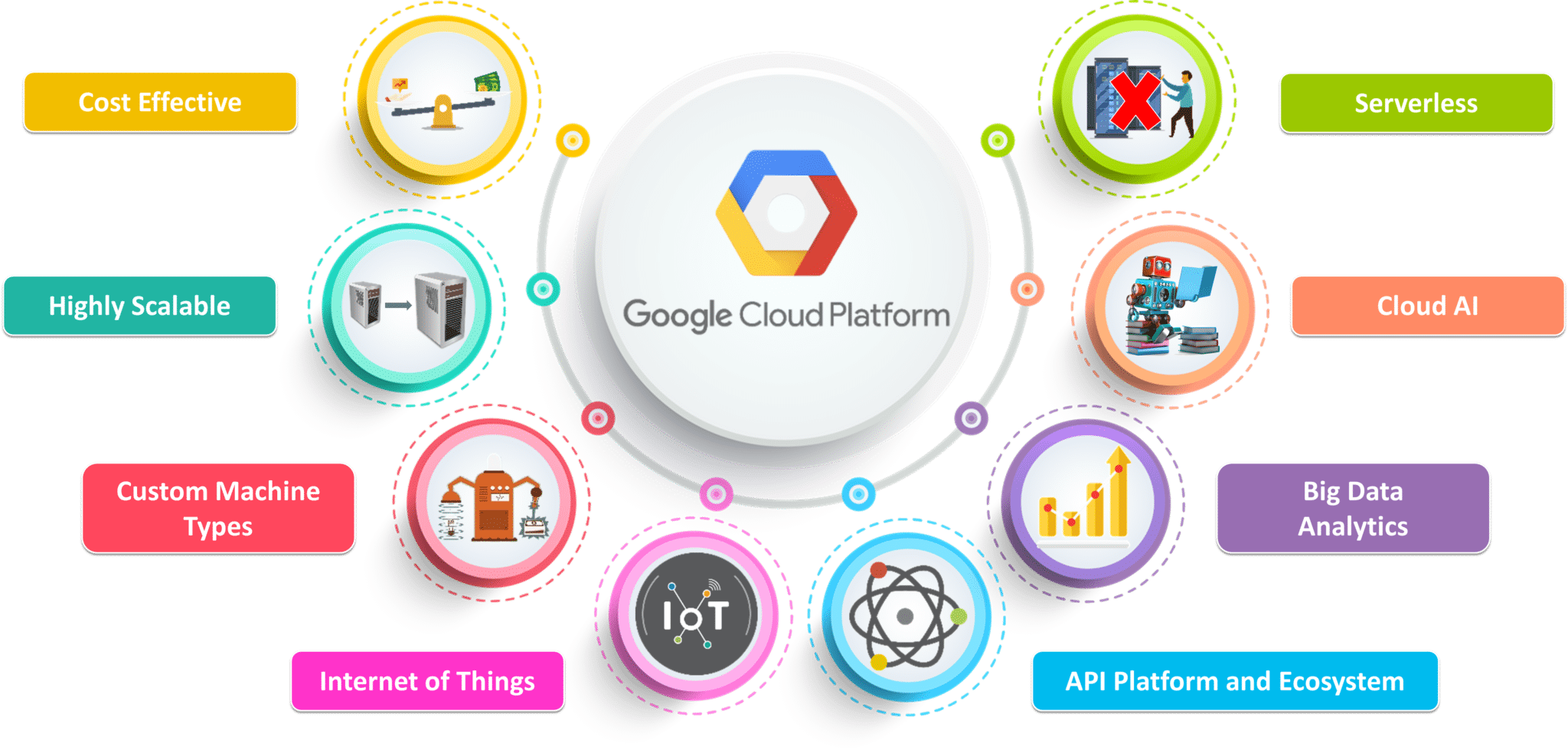
Utilizing GCP tools brings several advantages to businesses:
- Scalability
GCP tools are designed to scale seamlessly as your workload grows. Whether it’s adding more compute resources or expanding storage capacity, GCP tools can accommodate your evolving needs without disruption.
- Reliability and Performance
Google Cloud Platform is built on Google’s global infrastructure, which ensures high availability and low latency. GCP tools deliver excellent performance, enabling businesses to process and analyze large volumes of data efficiently.
- Cost-effectiveness
With GCP’s pay-as-you-go pricing model, businesses only pay for the resources they consume. This flexibility allows them to optimize costs based on actual usage and avoid upfront investments in infrastructure.
- Security and Compliance
GCP tools provide robust security features, including encryption at rest and in transit, identity and access management, and compliance with industry standards. This ensures that your data remains secure and meets regulatory requirements.
- Integration with Other Services
Google Cloud Platform offers seamless integration with other Google services like Google Analytics, Google Ads, and Google Maps. This integration allows businesses to leverage the power of these services in conjunction with GCP tools to drive innovation
What are the benefits of learning GCP Tools?
Learning Google Cloud Platform (GCP) tools presents multiple advantages, especially in an era where cloud computing plays a key role in business and technology. Here are some of the key benefits:
- High Demand for Cloud Skills: As more companies relocate to the cloud, the need for professionals trained in cloud platforms like GCP is expanding. Learning GCP tools can open up multiple career opportunities in different initiatives.
- Complete Cloud Solutions Knowledge: GCP delivers various services and tools, including computing, storage, databases, machine learning, and analytics. Understanding these tools presents a thorough acquaintance of cloud solutions, useful for a combination of IT roles.
- Innovation and Scalability: GCP is known for its creative solutions in areas like big data, machine learning, and containerization (Kubernetes). Understanding these tools lets professionals make highly scalable and efficient cloud-based solutions.
- Improved Career Options: Having GCP skills on your resume can significantly improve your job opportunities. It proves to employers that you have recent and in-demand cloud computing skills.
- Certification Uses: Google shows certifications for its cloud platform, which can validate your skills and proficiency in GCP tools. These certifications are positively considered in the tech industry.
- Cost-Effective and Flexible Solutions: Learning GCP tools allows professionals to create and execute affordable, flexible cloud solutions for businesses, optimizing resources and enhancing performance.
- Entrance to Cutting-Edge Technology: Google is a leader in the creation, and by knowing GCP tools, you acquire access to some of the latest advances in cloud technology.
- Global Network and Infrastructure: GCP’s global infrastructure lets professionals learn about deploying applications and services on a huge, international scale.
- Collaboration and Productivity: GCP contains tools that improve teamwork and productivity, such as G Suite. Understanding these tools can enhance how teams unite in a cloud environment.
- Customization and Control: GCP shows a high level of customization and control over cloud resources, an important skill for IT professionals looking to tailor cloud solutions to precise business requirements.
- Enhanced Data Management and Research Skills: With tools like BigQuery and Dataflow, GCP supplies powerful capacities for data processing and research, a skill in high need in the epoch of big data.
- Safety and Compliance Knowledge: GCP is known for its powerful safety features. Learning these tools assists in comprehending how to control and save data actually in the cloud, an increasingly critical part of the digital age.
How to get trained in Google Cloud tools?
To gain expertise in utilizing GCP tools effectively, consider the following steps:
- Official Documentation
Start by examining the official documentation Offered by the Google Cloud Platform. It is an excellent resource for understanding the features, capabilities, and best practices of each Google Cloud Platform tool.
- Online Courses and Tutorials
Various online learning platforms offer courses and tutorials specifically designed for learning GCP tools. The best online Platform for learning GCP is Network Kings. They provide comprehensive courses that cover various aspects of the GCP tools.
- Google Cloud Certifications
Google offers professional certifications that validate your proficiency in using the Google Cloud tools. Consider yourself pursuing certification courses like Google Certified Professional – Data Engineer or Google Certified Professional – Cloud Architect to boost your expertise in the cloud.
- Community Engagement
Engage with the GCP community by participating in forums, attending meetups, reading blogs related to GCP, and joining relevant social media groups. Interacting with expert instructors can provide valuable insights and help you stay up-to-date with the latest developments.
- Hands-On Experience
Nothing beats hands-on experience when it comes to learning GCP tools. Create your projects, take an internship, experiment with different GCP Cloud tools, and explore real-world use cases to gain practical knowledge and skills in Cloud computing.
Why choose Network Kings for learning GCP Tools?
There are several reasons why you should choose Network Kings to learn GCP (Google Cloud Platform) tools:
Expert Trainers: Network Kings has experienced trainers who are GCP experts and can provide in-depth knowledge and practical insights on the proper use of GCP tools.
Course Details: Training offered by Network Kings covers a wide range of GCP tools and applications, ensuring that you have a comprehensive understanding of the platform.
Hands-on Training: Network Kings emphasizes hands-on training, allowing you to apply your skills and knowledge in real-world situations. This practical approach helps to strengthen your learning and builds confidence in utilizing the GCP tools.
Exam preparation: Network Kings offers a GCP certification path, that helps you prepare for official Google Cloud certification. These types of certifications attest to your skills and enhance your career prospects.
Flexibility: Network Kings offers flexible learning options, including online courses, in-person courses, and instructor-led training. This allows you to choose a learning method that suits your schedule and preferences.
Supportive Community: Network Kings has a supportive community of students and staff who can help you along your learning journey. You can chat, ask questions, and collaborate with others to increase your understanding of GCP tools.
Related fields: GCP is widely used in the industry, and learning GCP tools through Network Kings can provide you with skills and knowledge that are in high demand in the industry.
Conclusion
In conclusion, mastering Google Cloud Platform (GCP) tools is more than just a step towards improving personal technical skills; it’s an asset in a future-proof career in cloud computing. By understanding the functionalities of various GCP tools, exploring their advantages, and investing time in training and hands-on practice, businesses can unlock the full potential of GCP and drive innovation in their operations for enhanced performance and growth.
Good Luck

